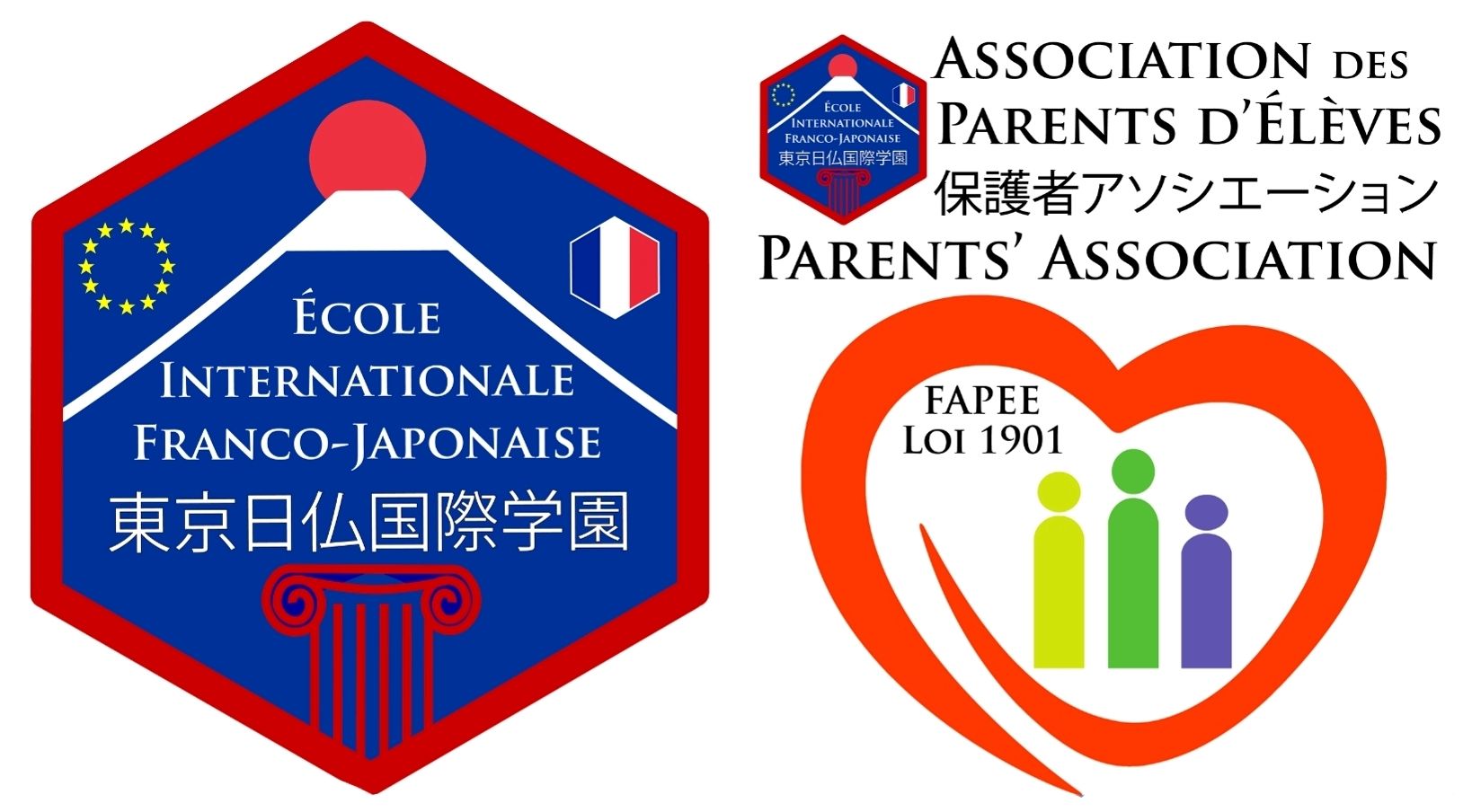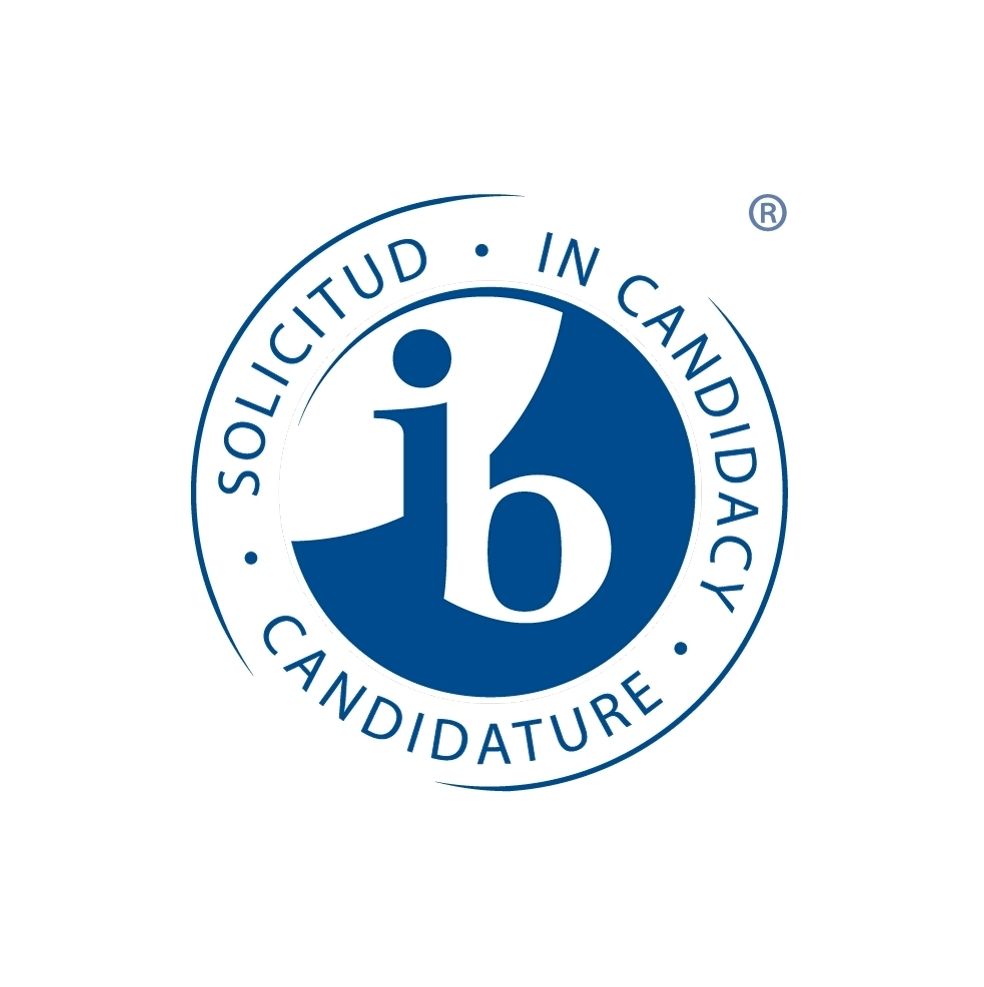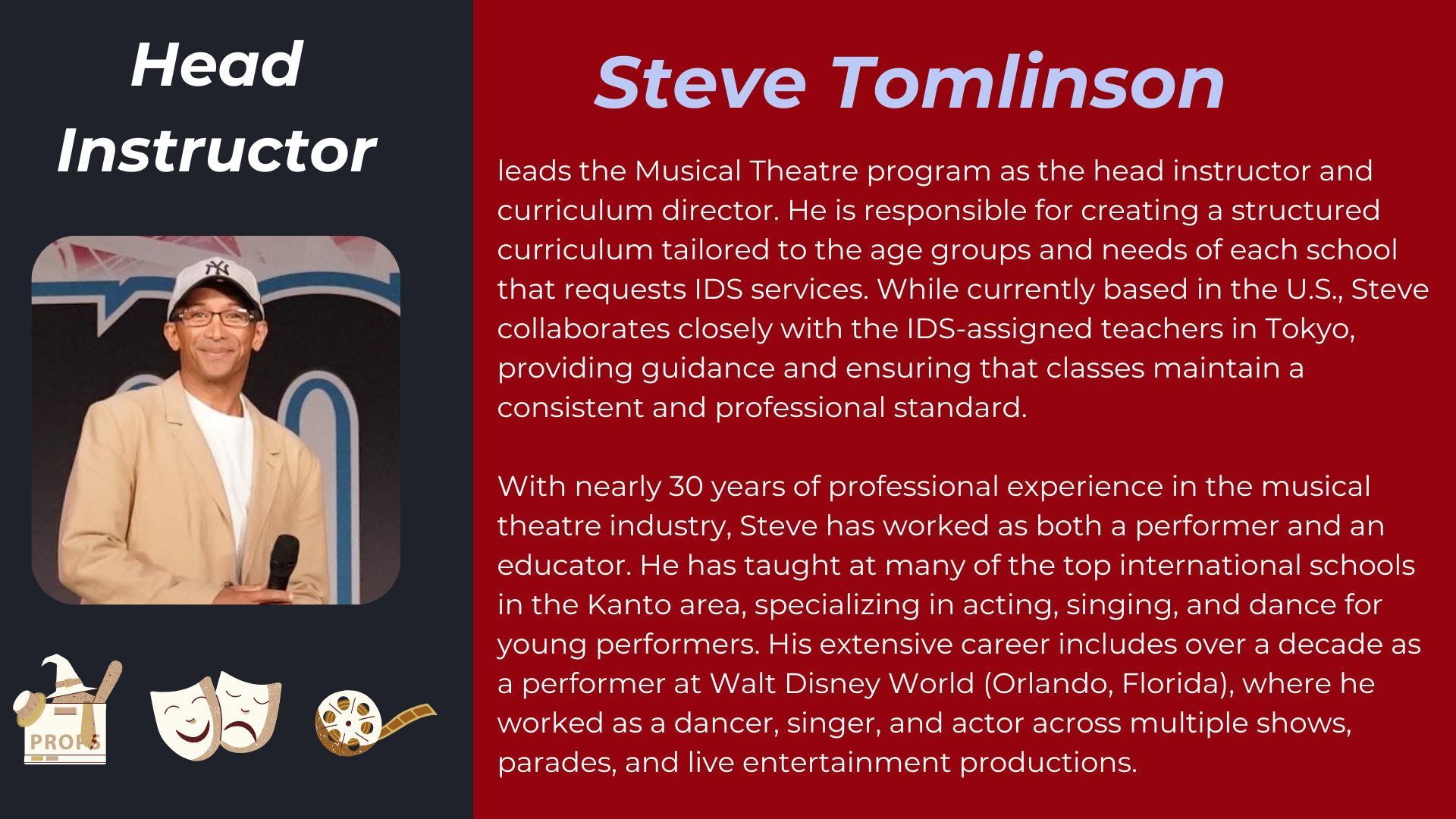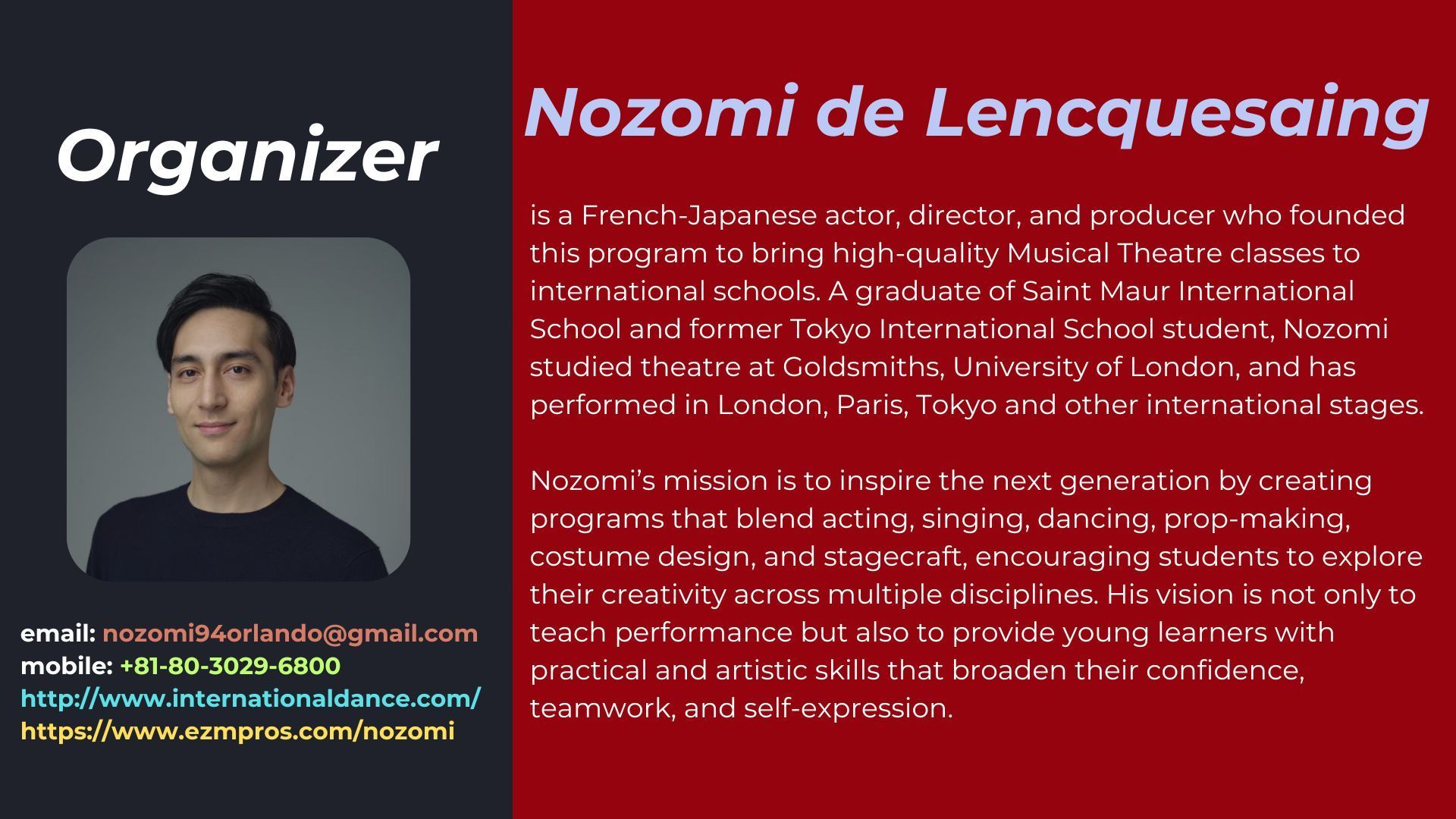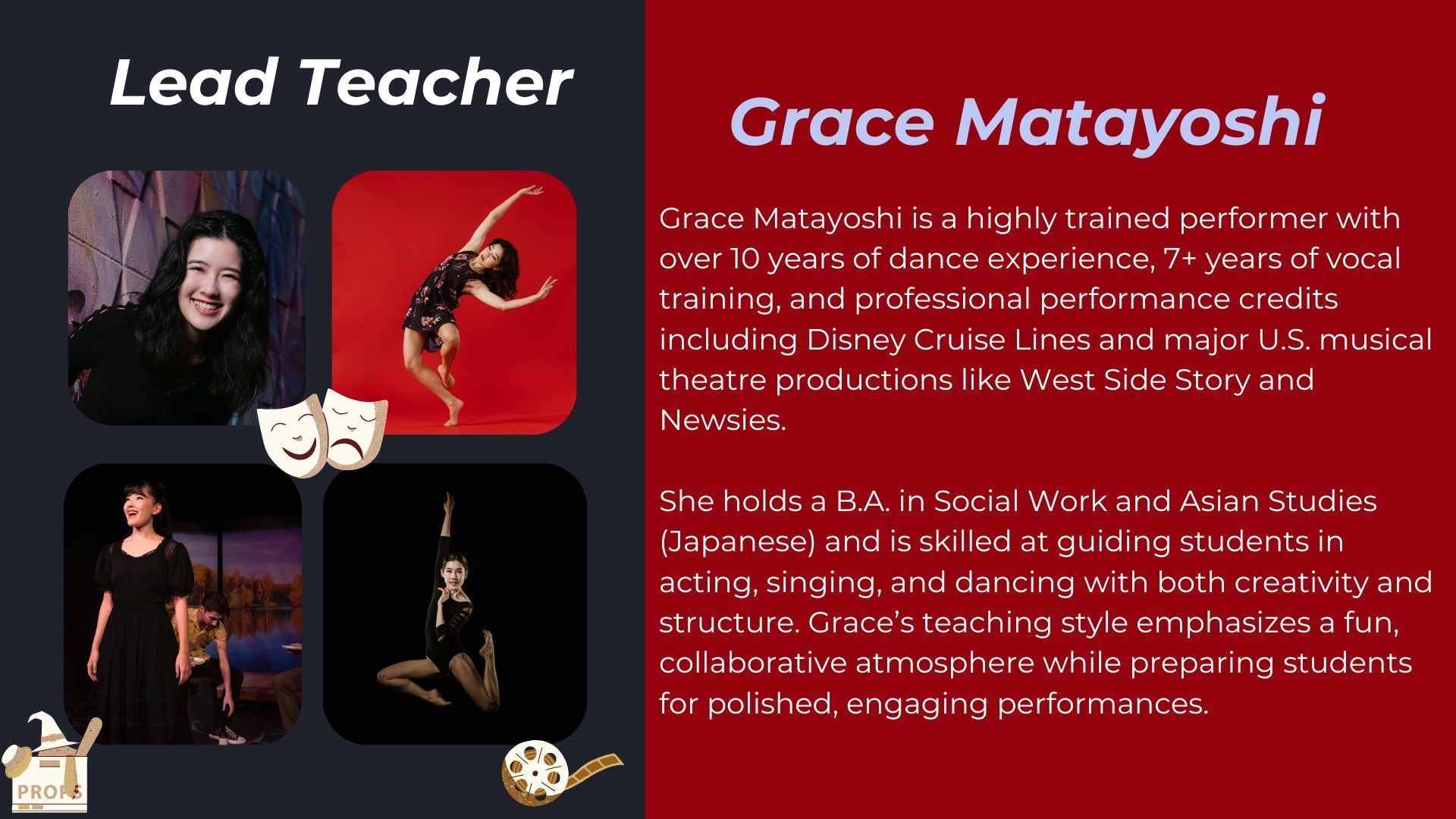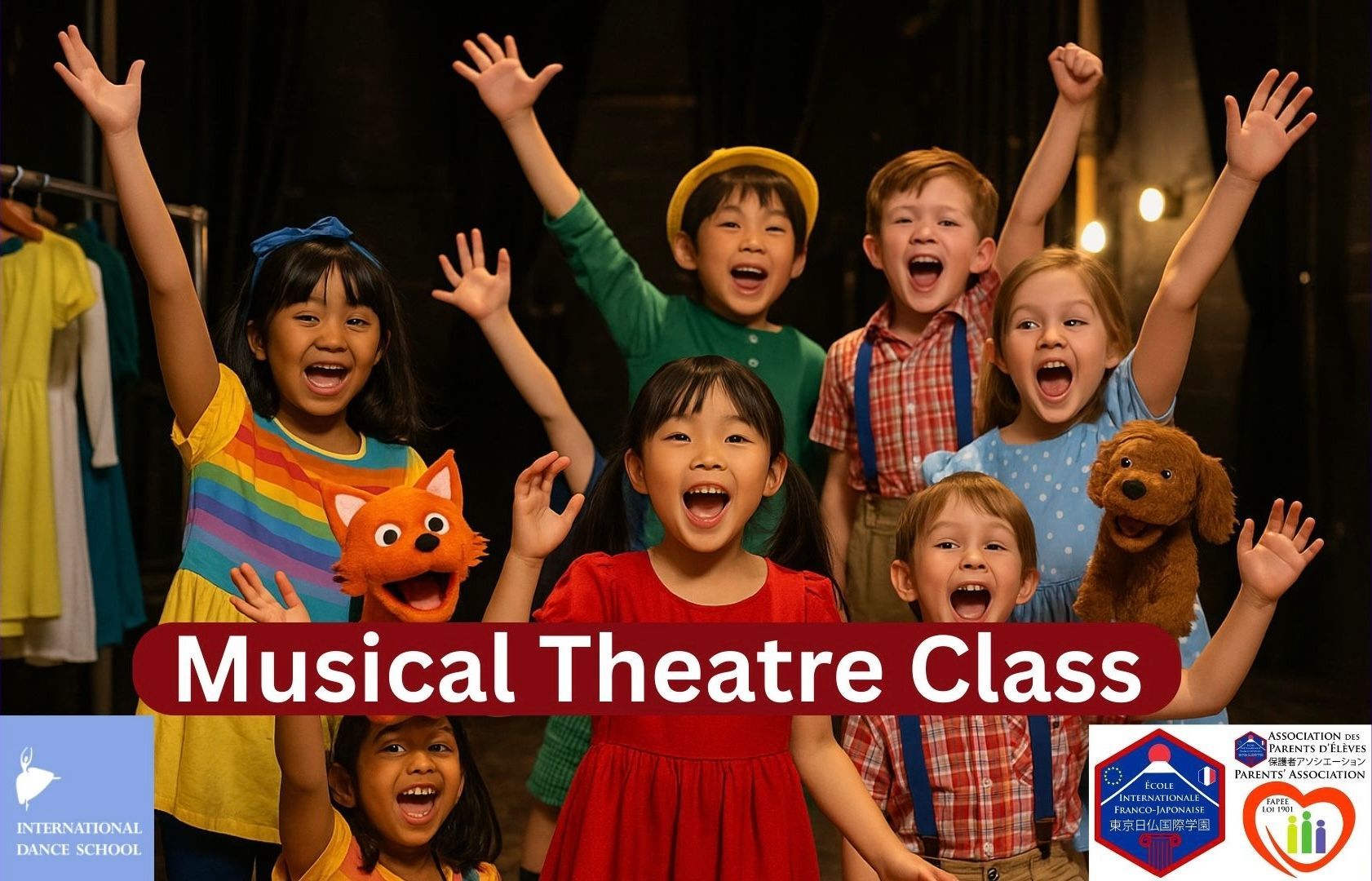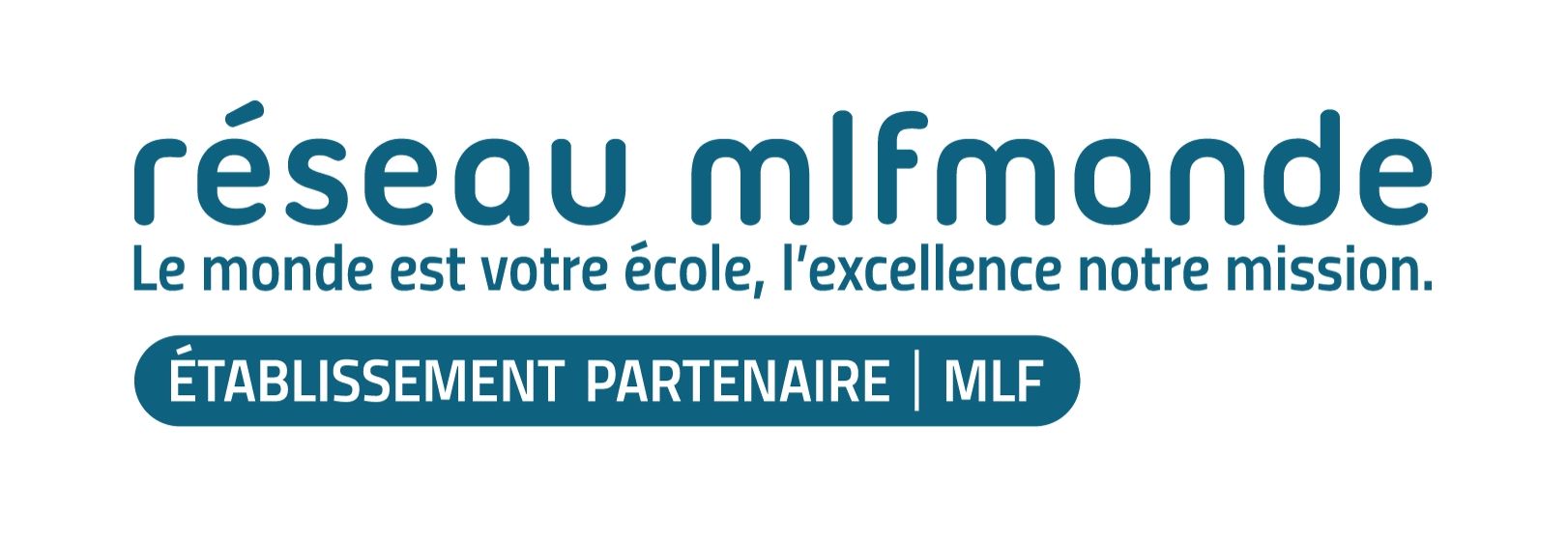Musical Theatre
"First step to improvement is to meet the right instructor."
International Dance School (IDS), with 30 years of experience, as it is represented by its name, offers diverse dance courses for students form age three to adults in a multi-cultural and accepting environment. As for Musical Theatre, IDS encourages young students to explore creativity through acting, singing, dancing, and stagecraft. Our vision is to foster not only technical
excellence but also the broader artistic growth of every student.
Musical Theatre at EIFJ
Starting Wednesday, 10 September 2025, IDS will launch a Musical Theatre program at EIFJ. The program is taught in English, with potential special workshops in French. Students will develop skills in performance and teamwork while preparing for an exciting end-of-season show.
Class Times (Wednesdays): "Join our trial class & let your creativity shine!"
- 12:00-13:00: Students aged 4-5 years old
- 13:00-14:00: Grade 1 to Middle School
- 14:00-15:00: KPOP Dance, Grade 1 to Middle School
Trial Class: "Reserve your spot today through EIFJ."
A trial class will be held on Wednesday, 3 September 2025.
We encourage as many students as possible to join and experience the joy of Musical Theatre at EIFJ!
http://www.internationaldance.com/
http://www.internationalballethighschool.com/
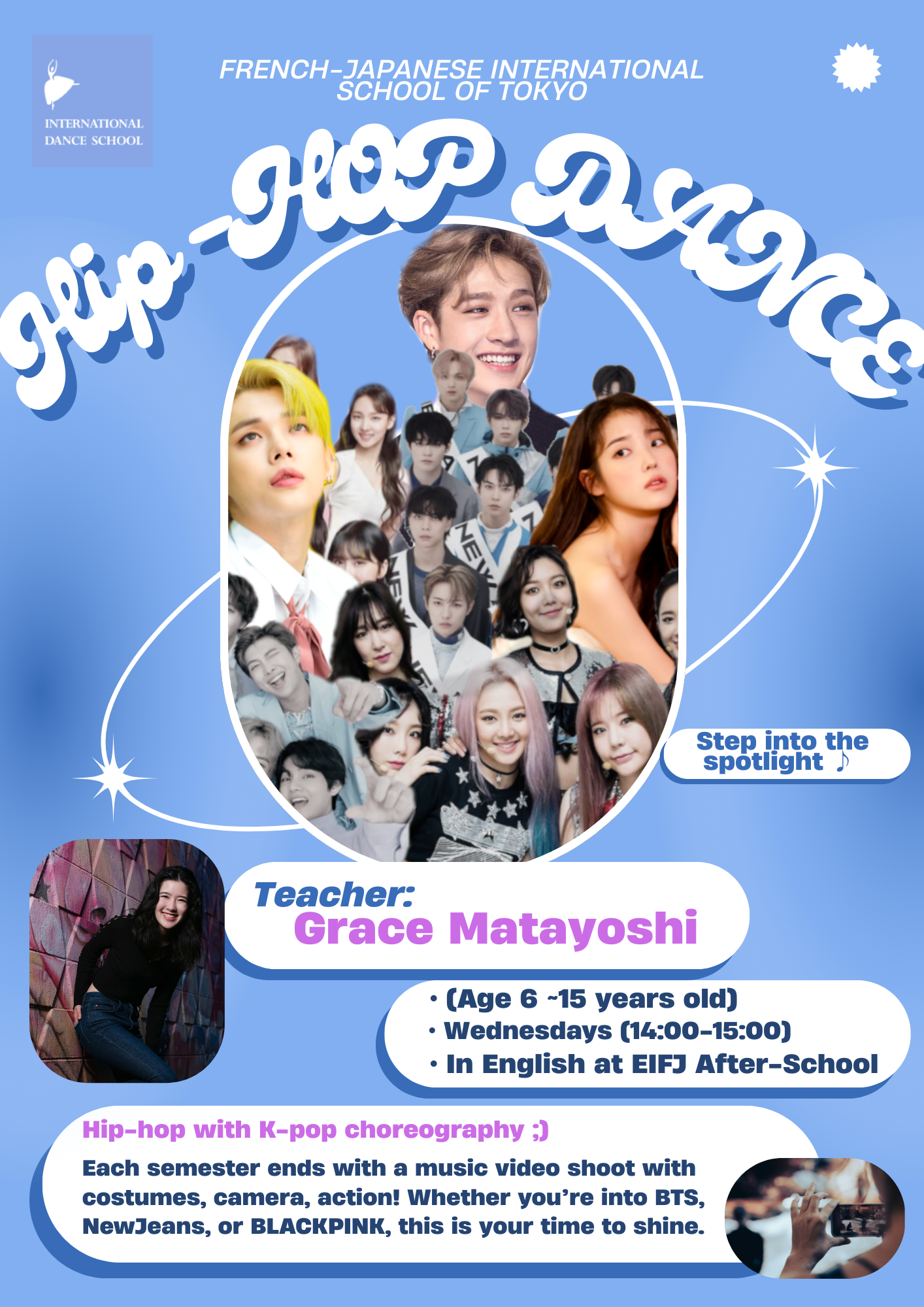
Hip-Hop with K-Pop choreography ;)
Each semester ends with a music video shoot with costumes, camera, action!
Whether you’re into BTS, NewJeans, or BLACKPINK, this is your time to shine!

CALENDAR, FEES & SCHOOL BUS
- The fees are termly (Fall, Winter, Spring & Summer), payable before every term.
- A trial session is offered at half price for new students.
- There are no admission fees.
- The number of lessons is clarified before every term based on the professor’s availability and the students' need.
- Lessons during school holidays are often possible based on demand, and invoiced separately.
- In case of the absence of the activity leader, no refund is possible, however a catch-up lesson can be offered in the final week of each term (which remains without lesson for this purpose) depending in availabilities of the activity leader and the student. It is the responsability of the activity leader to avoid absences, offer extracurricular classes and communicate with the families via the school app in a rigorous way.
- After the registration, in case of absence of the student what any reason, no refund is possible for any missed lesson.
- Any lesson starting during a term is invoiced on a pro rata temporis.
- Transportation: stay on campus if your child is a regular student, or make your own way to EIFJ Tokyo from 3:30 p.m. (1 p.m. on Wednesdays). Following the activities, the main buses depart at 17:00 to bring students back home, while Alpha bus departs at 16:00 and 17:00.
To enroll, please check the following table, select the time slots, and fill in the online admission form with all needed information: our team will get back to you shortly.
NB: Japanese scholarships for Japanese, French, and international families (37,000 to 97,000 yen subsidies per month) are applicable to 3 to 6 years old students (Pre-K to 1st Grade) enrolled in EIFJ or other schools for
childcare,
holiday school,
intermittent class &
regular school programs only. Please visit our
dedicated page for further information.



